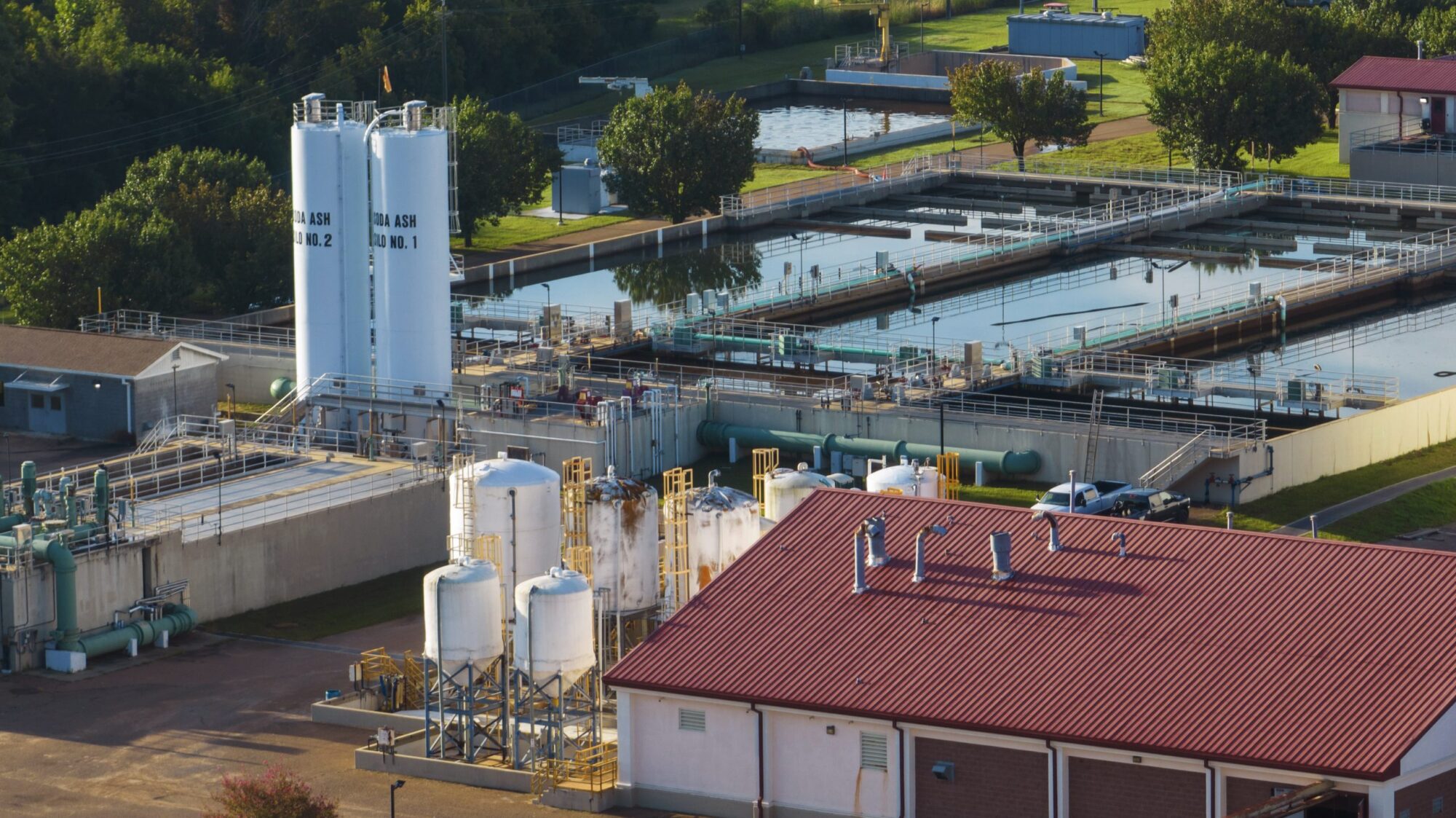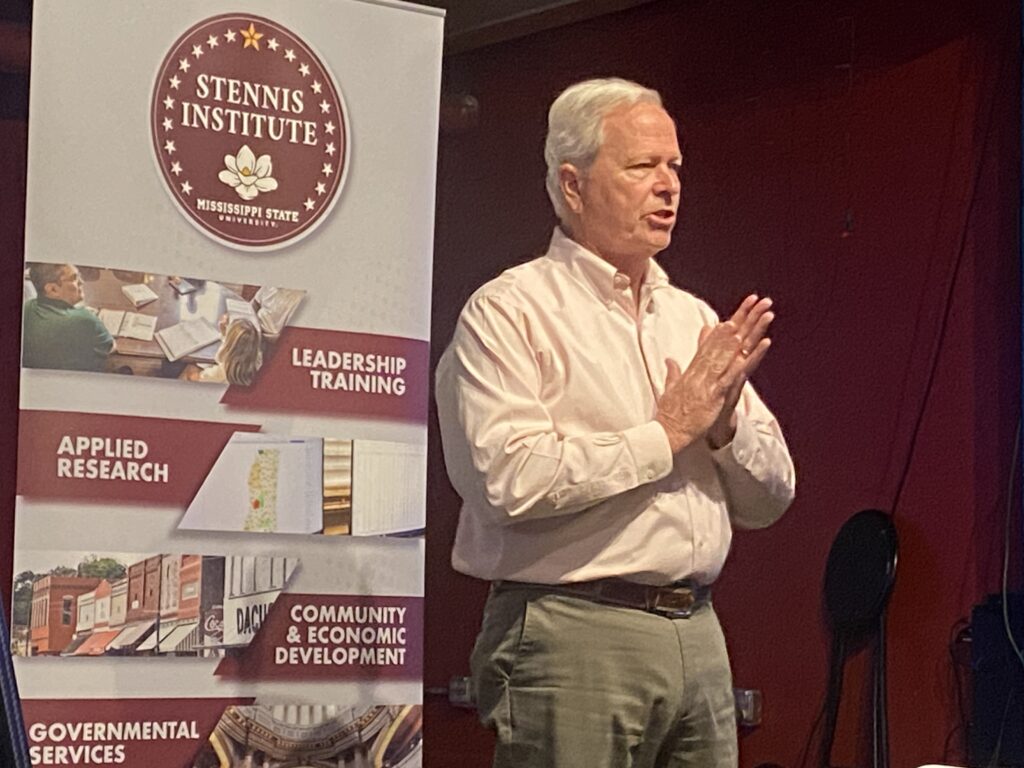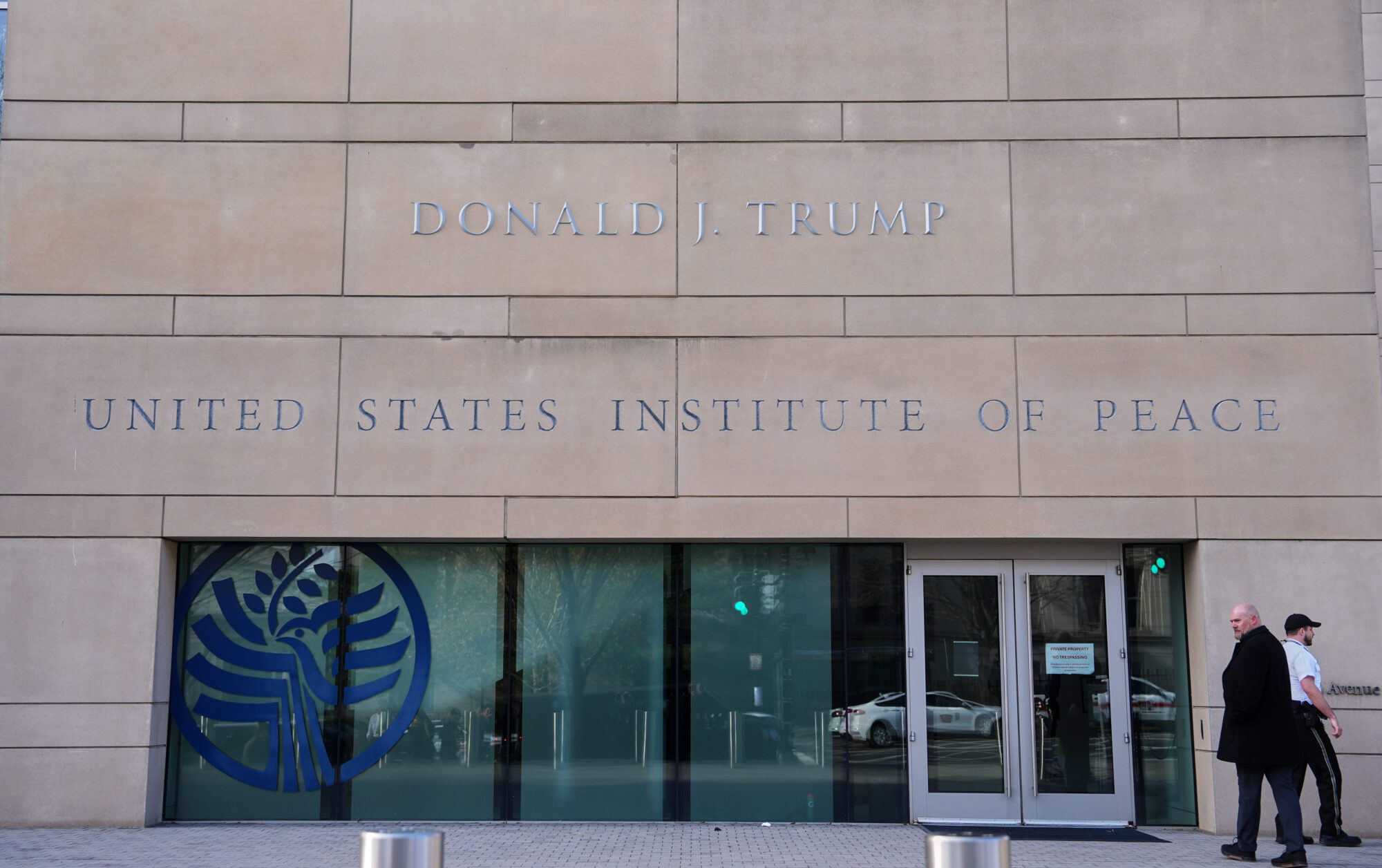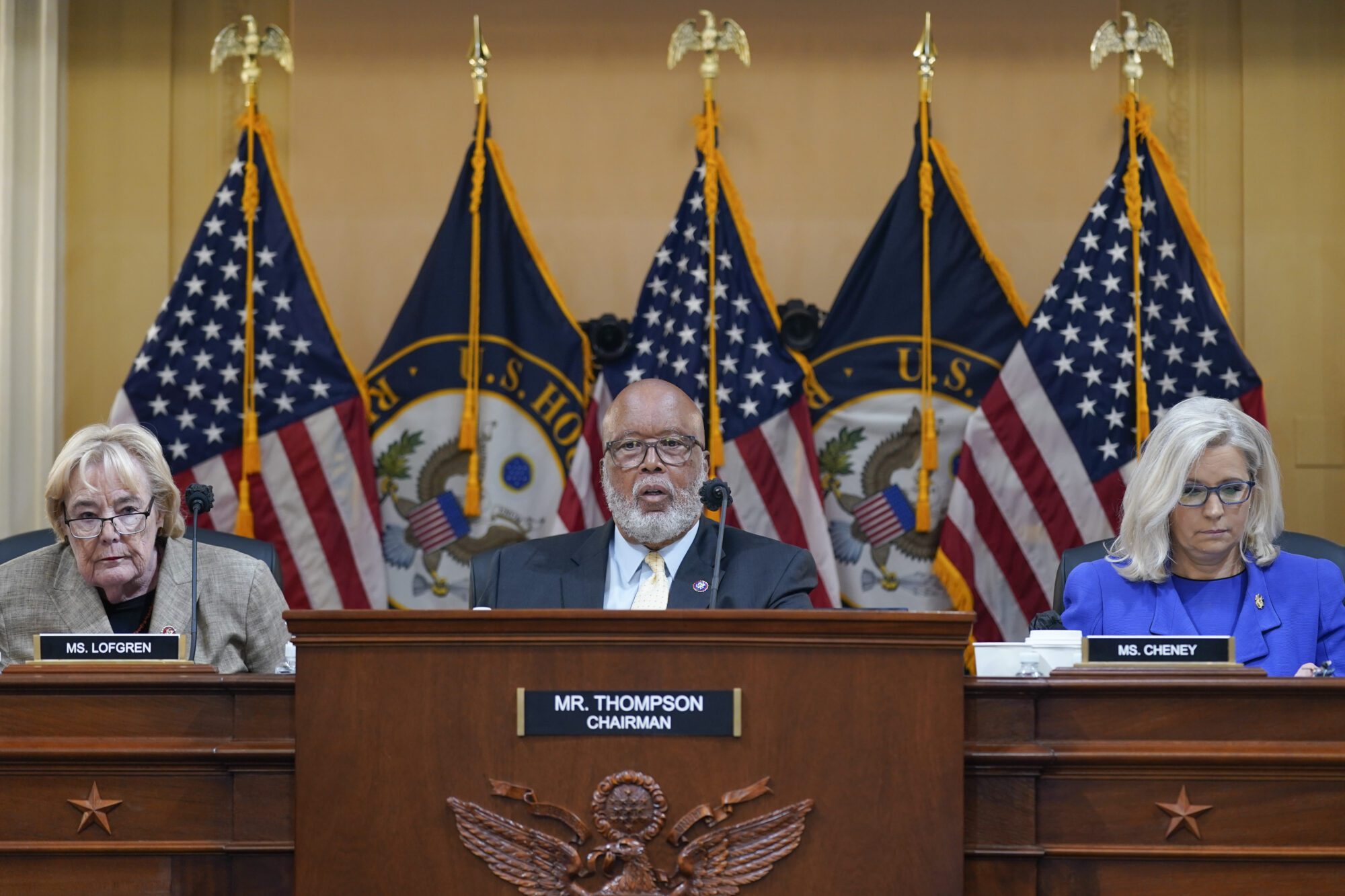
This is an aerial view of of the City of Jackson's O.B. Curtis Water Plant, Thursday, Sept. 1, 2022. (AP Photo/Steve Helber)
The city’s water system is over $280 million in debt and no clear path has been determined as to how residents and businesses will be billed to increase revenue.
Work continues to restore Jackson’s water system. The problems faced in the capital city span from infrastructure issues, operational malfunctions, water cleanliness and major debt from unpaid bills.
“It took decades to get to where we are now, it is going to take a little while to get out of this,” said federally appointed, third-party interim director over the Jackson Water system, Ted Henefin. He provided updates on how improvements are being managed to a group on Monday.
“My goal is to not have a big crowd turn up to hear about this next year because we are putting water behind us,” Henefin said.
At this time, there is a new 24-hour phone number residents can call for any water issues, including personal billing. That number is 601-500-5200.
In August of 2022, the O.B. Curtis plant suffered major operational issues resulting in loss of water pressure, or no water at all, for many residents in the city. Henefin was appointed as interim manager in November of 2022 after the incident. He currently oversees the Jackson water system as well as the billing component of the system. Under the set court order, there are 13 action items Henefin is responsible for addressing.
RELATED: Federal attorneys agree to pause litigation on Jackson water system
Jackson’s water system services roughly 150,000 residents in the city. It is comprised of a well system, with six well locations, and two surface water systems known as the J.H. Fewell Water Treatment Plant and the O.B. Curtis Water Plant.
Both surface water plants utilize gaseous chlorine. While Henefin says it was a typical chemical used in water plants in the past, many have transitioned away from it. Henefin said they are on track to eliminate the use of gaseous chlorine by this time next year.
“A lot of things are happening. You may not see all of that yet. We’ve really rebuilt how the water system is operating and the first part of that was getting a contract operator for the water treatment plants,” said Henefin.
The contractor hired in February is Jacob Solutions, which operates over 250 water plants across the U.S. The company is working on a 6-month contract and at the end of that time, more negotiations are expected for longer term operations.

As of today, Henefin says that the surface water plants are operating at a very good pace. Water production has increased, as well as water pressure. The increase in pressure comes from roughly 60 major being located and opened by these special operators.
However, the city still does not have pressure zones built in. Therefore, it is operating as one large system. This is why the whole system is impacted when a large break occurs.
In order to make the changes required as a third-party interim manager, Henefin formed the company JXN Water. Through the company he has been able to hire individuals already working for the city as special operators. These employees are paid by the city, and supplemented through JXN Water.
Many of the issues faced by the city’s water system come from a large lack of data regarding where pipes, valves, and breaks are located. A national company was contracted at $5 million dollars to continue locating each valve in the city’s infrastructure and collect data based on their function.
The company will next test all of the city’s water hydrants and paint them after they are cleared.
Another expectation by 2024 is the potential closure of the J.H. Fewell plant.
Henefin pointed out that current water production is averaging around 50 million gallons per day. The EPA estimates that the average American uses 88 gallons of water a day. In a city like Jackson, that would come closer to 20 million gallons daily. The additional 30 million being pumped out in Jackson is mostly due to the daily leaks that have yet to be fixed.
“We’ve got a lot more attention on the water system, which is a good thing,” said Henefin. “We’re getting better, we are focused on the system and we are going to get a lot better putting the things we need in place.”
Ultimately, if O.B. Curtis were to function at full capacity, the plant could meet every day needs on its own. However, current repairs prevent the plant from full operation.
When Judge Henry Wingate placed Henefin in charge in Jackson, there was no financial support from the federal government to feed into the water system. At the end of 2022, Congress passed $600 million which is intended to go directly into the city’s system.
“Suddenly the job became maybe doable with $600 million to work on it,” said Henefin.
Since that time, Henefin has applied for $115 million in grants and drawn down $15 million from that money to engage in repairs. He said, with that money, they have been able to rebuild how the water system is operating.
Additional dollars have been allocated to the Army Corps of Engineers for water resources. It is unclear at this time if that money has been appropriated.
RELATED: State Auditor: Jackson, municipal water system in serious financial straits
Currently, the water system has $280 million accumulated in outstanding debt. The majority of the debt is in private bonds, according to Henefin. He indicated they plan to use a portion of the federal funds allocated to pay some of the debt. Currently it is taking around $48 million to operate the city’s water system, with $23 million going toward debt services.
“We’ve got to get the debt off the books,” said Henefin. “Ideally we would get it all down and taht would allow the system to generate from rate payers revenue.”
Moving forward, the city would need to generate $15 to $20 million yearly to reinvest in the system to keep it operational.
This brings into question how the city will handle collecting water bills and whether or not a rate change or increase will be required. Henefin said only 56 percent of what is being billed is being paid.
Meter usage has been unreliable in the past. Roughly 70 percent of residents and businesses have received new water meters. They believe there are at least 7,000 meters being used that do not have an account that can be billed.
All new meters are expected to be in place by the end of the year, but it could be one to two years before they are confident in meter usage billing.
He said as they move forward and establish a reliable billing process, residents will encounter water shut offs if they do not pay their bill. The city has not been actively enforcing shut offs on delinquent bills because of the discrepancies in billing.
“Something different will have to happen with rates. We haven’t landed on exactly where that will be. Few people believe the meters are reliable,” said Henefin.
Henefin said some options they are considering is billing based on square footage for an interim period. However, a recent state law could put limitations on any billing that does not take into account actual water usage.











